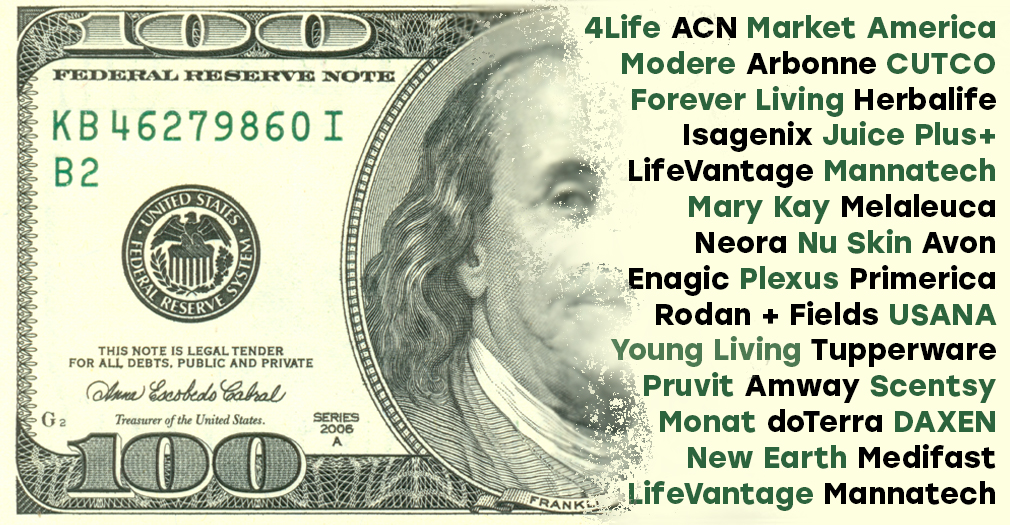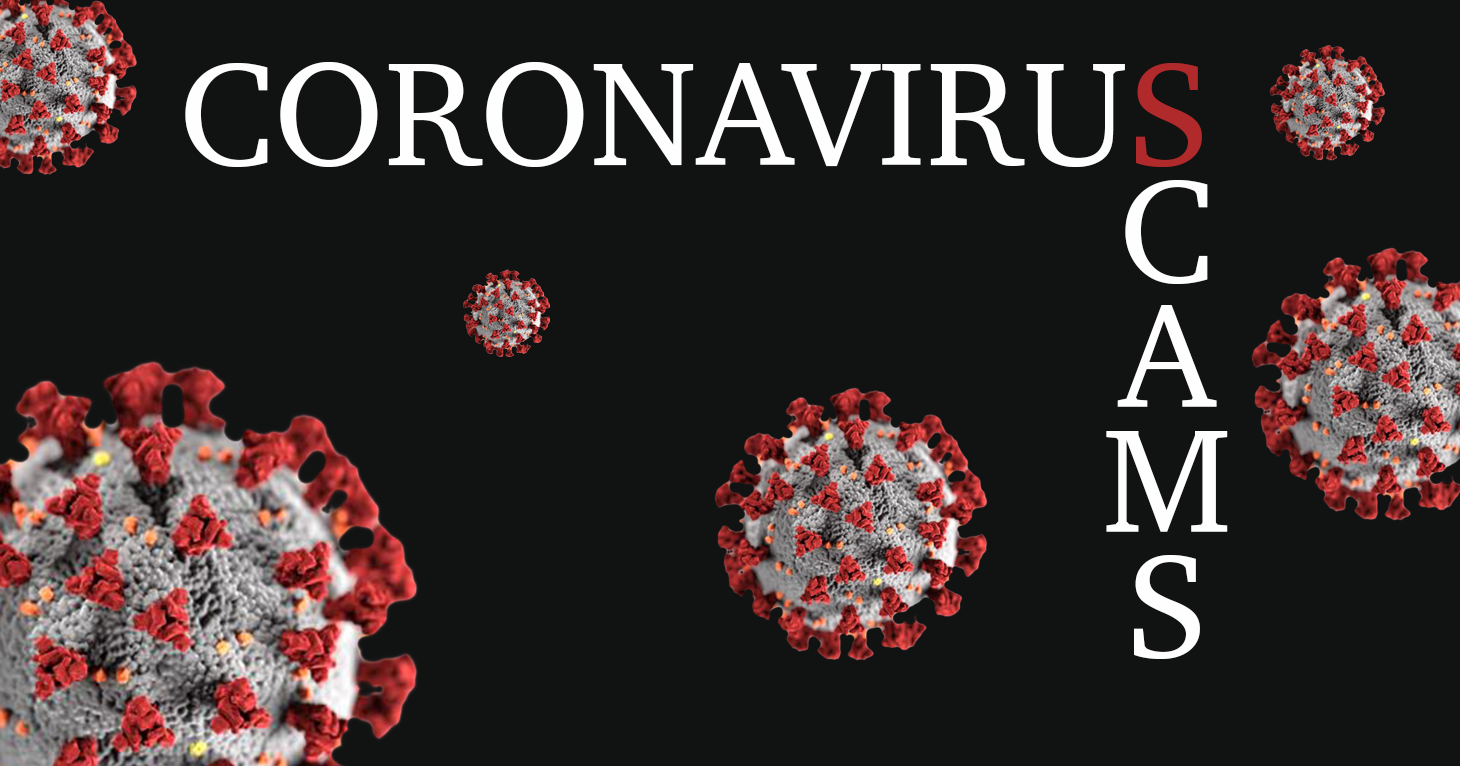
MLMs Continue to Recruit with Deceptive Earnings Claims
TINA.org investigation finds 98% of MLMs using misleading income claims.
Deceptive health and income claims, including some tied to COVID-19, persist in wake of warning from the feds.
|
Editor’s Note: Updates have been posted at the end of this article.
In the early months of the pandemic, the FTC put the MLM industry on notice about deceptive health and income claims linked to the coronavirus. By the first week of June, two rounds of warning letters had targeted a total of 16 MLMs. The list included some big names, too, such as essential oils giant doTerra, which is having a tough year, and Melaleuca, which has argued in the past that it doesn’t fit the definition of an MLM.
After the second round of warning letters, the FTC’s patience was beginning to wear thin. The agency’s frustration was palpable in a business blog published the day the second batch of warning letters went out, which reiterated the message in the warning letters that the companies are on the hook for the claims of their distributors:
Dear Multi-Level Marketer. Stop it. Stop all promotions that push your products by claiming they prevent or treat COVID-19. Stop all misleading or unsubstantiated promotions that push your business opportunity by claiming people can earn substantial income peddling your products. The claims are unproven and deceptive. Whether you or your distributors are making them, you’re responsible. That means you could be breaking the law.
A warning from the federal government that you may be engaged in illegal activity should serve as a wake-up call. But it appears it hasn’t had that much of an effect on any of the 16 MLMs the FTC publicly outed in April and June.
In the wake of receiving a warning letter from the FTC, each one of the MLMs has continued to make unsubstantiated health claims and/or deceptive income claims, a TINA.org investigation has found. A majority of the MLMs (10 out of 16) have also continued to put these claims in the context of the pandemic, making them doubly deceptive. In total, TINA.org’s sampling comprises more than 300 examples, the vast majority of which are distributors’ social media posts.
As the FTC informed the companies in the warning letters, it is unlawful to advertise that a product can prevent, treat, or cure disease unless the advertiser has competent and reliable scientific evidence to back up the statement. And claims about the potential to achieve a wealthy lifestyle, career-level income, or significant income are false or misleading if distributors generally do not achieve such results. Which they don’t, according to the FTC business blog (“Most people who join MLMs make little or no money.”). Finally, there’s no separating distributor claims from company claims in terms of who’s responsible.
For each MLM, TINA.org focused its search on the type of claim or claims at issue in the warning letter. For example, in its April 24 warning letter to It Works, which is known for its “body wraps,” the FTC cited only COVID-related income claims. So TINA.org looked for – and easily found — deceptive earnings claims related to the company’s business opportunity. TINA.org has shared its findings with the FTC.
An example from each of the 16 MLMs is included below.
Deceptive income claims
Illegal health claims
COVID-related claims
Go deeper
Rather than give specific earnings projections, which may explicitly violate company policy, a number of examples in TINA.org’s sampling show distributors, especially women, talking about how they’ve been able to earn an income while staying home with their kids. However, in its Business Guidance Concerning Multi-Level Marketing, the FTC warns that representations that distributors can “quit their jobs, ‘fire their bosses,’ or become stay-at-home parents” should be avoided if participants generally do not achieve career-level income, which is the stark reality for the vast majority of MLMers.
Another popular phrase in TINA.org’s sampling is time freedom, which may soon overtake financial freedom after the Direct Selling Self-Regulatory Council (DSSRC) labeled the latter a deceptive income claim. The problem with using the term time freedom, however, is that it deceptively implies that distributors won’t have to work as much while also achieving financial freedom. Which is to say, the two are inextricably linked.
‘We have to make sure we don’t give misinformation’
Several of the deceptive claims above come from members of the Direct Selling Association (DSA), the industry trade group whose often-touted code of ethics prohibits members from making misleading claims. The DSA members are Melaleuca, Modere, Arbonne, Isagenix and Juice Plus.
In late March, before the FTC sent out any COVID-related warning letters, DSA President Joe Mariano urged members to be “vigilant” of distributors who may seek to exploit the coronavirus.
“We have to make sure we don’t give misinformation about what our products do, about our opportunity, particularly at a time like this and not be seen, or in fact, taking advantage of a crisis situation,” he said earlier this year.
But DSA members and non-members alike have been taking advantage of consumers long before the pandemic arrived. Over the years, TINA.org has cataloged thousands upon thousands of deceptive income and health claims made by both MLMs and their distributors.
These efforts have produced results. While the DSA often touts that the MLM industry is booming, the truth is direct selling in the United States is in decline. And in the past year alone, the DSA has lost 10 members, even as so many distributors suggest that the MLM industry is pandemic-proof.
A recent survey of DSA members says differently. Nearly one-third of respondents (29 percent) said the pandemic has had a negative impact on their business.
The DSA cited the survey in response to an inquiry by TINA.org notifying the trade group of its findings. Asked if the FTC warning letters to the five member companies prompted any action by the DSA, such as a compliance review, the DSA said:
As with any such matters, the warning letters were shared with the DSA Code Administrator and the [DSSRC] for their attention and appropriate action. It is our understanding that the companies responded to the FTC concerns and comments, as well as subsequent communication from the DSSRC and/or DSA Code Administrator with appropriate remedial action.
Yet deceptive income and health claims remain easy to find.
And the award goes to…
This week, the DSA plans to hold its annual awards gala. Among those nominated for multiple awards, including a corporate social responsibility honor, is Isagenix, one of two DSA members that despite being warned by the FTC continues to make COVID-related claims.
See TINA.org’s findings here.
UPDATES
1/8/21: As of Jan. 7, all but five of the Plexus claims in TINA.org’s database had been removed. Similarly, prompted by a letter from the company, TINA.org audited its Rodan and Fields findings on Jan. 8 and found that all but one of the claims had been removed.
12/23/20: In a Dec. 18 letter to TINA.org, Isagenix said it had removed all of the company and distributor posts identified by TINA.org except for one Facebook post and video by a podcaster who interviews an Isagenix distributor but who, according to Isagenix, is not a distributor himself and is refusing to take down the post or video. Similarly, in a Dec. 21 letter to TINA.org, Plexus said it has taken steps to remove “all non-compliant and other questionable claims highlighted by TINA.org.” TINA.org conducted an audit of its Isagenix and Plexus findings on Dec. 22 and found that the only post that had yet to be addressed by Isagenix was the podcaster’s Facebook post but that Plexus had only removed three of the 27 deceptive health and income claims identified by TINA.org.
TINA.org investigation finds 98% of MLMs using misleading income claims.
Supplement MLM takes down dozens of deceptive claims following TINA.org investigation.
A master list of known and alleged scams.


